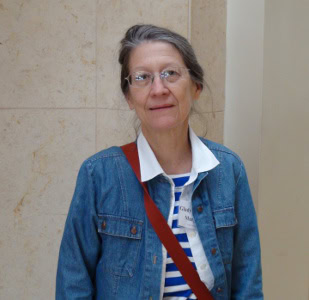This resource was developed as part of the AHA’s Tuning project.
Institution: Regis University
Location: Denver, CO
Year: 2014
Student Learning Outcomes and Objectives
Upon successful completion of this course, the student will be able to:
Outcome 1: Show the understanding of the disciplines of HS and POL, which systematically examine change over time and the underlying cause of change–environmental, economic, cultural, linguistic, and/or institutional. [Explain with factual and theoretical detail the underlying cause of change over time, drawing on environmental, economic, cultural, linguistic, or institutional contexts.]
Objectives
-
- HS students will explain how historians draw on the evidentiary record in attributing change over time to specific causes; they will show that causal relationships require a link between a specified starting and ending point in time and place. [HS students will provide in-depth evidentiary support of these causal relationships from one point in time/place to another.]
- History students will know how to read and interpret the evidentiary record to identify and explain the causes and effects of changes over time.
Outcome 2: Show understanding of the complexity of such change and its causes. [Delve into the complexity of said change, continuity, and causality.]
Objectives
-
- HS students will do so through systematic analysis of three environmental zones.
- History students will demonstrate the ability to use the historical method in analyzing change over time in three defined fields, from among the following: Europe, Asia, United States, Middle East, World, Latin America, and Africa, as well as over two distinct time periods, pre- and post-1500.
Outcome 3: Show understanding of society and politics in diverse cultures, explaining inter-group social, economic, individual, and collective dynamics as they change over time and shape their contexts. [Students explain how complex individual, intergroup, and cultural dynamics shape social, political, and economic contexts.]
Objectives
-
- History students will demonstrate an understanding of diverse cultures and the ability to explain the causes and effects of cultural, political, social, economic, and environmental interactions among diverse groups.
Outcome 4: Show ability to read, write, and speak critically and respectfully with empathy, facts, concepts, and theories. [Students read, write, and speak critically and respectfully with empathy, facts, concepts, and theories.]
Objectives
-
- History students will demonstrate the ability to read and write critically and to speak persuasively with eloquence.
Outcome 5: Show responsible ethical behavior as adults engaged in social and scholarly work. [Students model ethical behavior as adults engaged in social and scholarly work.]
Rubric
History Student Self-Evaluation
Baseline, Midway, and Summative (circle one); date of evaluation:
| Developing | Commendable | Exceptional | Circle one or more | |
|---|---|---|---|---|
| SLO 1 | Fewer than 3 methods of inquiry in just 1 or 2 fields of study | Articulation of at least 3 methods of inquiry in 3 of 4 fields of political study | Synthesized argument of the comparative advantage of different methods of inquiry that draws on all 4 fields | Capstone / research / honors / video / sum critique / reflection / pictures / link |
| SLO 2 | Still unclear about the relation of power and ideology as causes of change and continuity | Clear argument of change, continuity, and causality in the study of power and ideology | In addition, synthesized analysis of power and ideology across 4 fields in terms of change, continuity, and causality | Capstone / research / honors / video / sum critique / reflection / pictures / link |
| SLO 3 | Unable to explain why certain political systems emerge, given their particular place, time, and culture | Cognizance of how differently the political systems of diverse cultures emerge and affect people | Empathetic consideration of diverse cultures, socio-political systems, and the dynamics of groups, particularly those on the margin of political power | Capstone / research / honors / video / sum critique / reflection / pictures / link |
| SLO 4 | Unable to read, write, speak, or take notes that reflect these basic elements of an essay | Clean and concise reference to researchers' questions, theses, contexts, theories, concepts, and evidentiary analysis | In addition, synthesis and comparative analysis of different fields of political and international studies | Capstone / research / honors / video / sum critique / reflection / pictures / link |
| SLO 5 | Clear reflection and response to one's Regis experience and the materials and applied lessons of this department | Mature reflection and response to one's own experience and learning, as well as one's alter ego, and how different lessons and applications of history and politics occur | Capstone / research / honors / video / sum critique / reflection / pictures / link |
Related Resources

June 9, 2024
Statement on Age Discrimination

May 16, 2024
